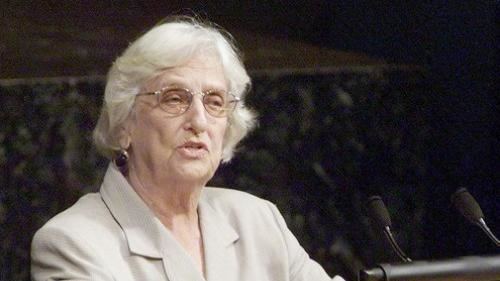30 years since the P.A.C. – Janet Jagan
On November 6, 1976, the People’s Progressive Party commemorated the 30th anniversary of the formation of the Political Affairs Committee (PAC). This was the organisation from which the People’s Progressive Party emerged in January 1950. Thus, its three years of existence form part of the important history of the PPP. Writing about her recollections of that period for the Mirror newspaper, Janet Jagan made the following notes:
It was a book, as I recall the events which led to the formation of the Political Affairs Committee, which brought together the four persons who founded it. The Political Affairs Committee was the body which led to the formation of the People’s Progressive Party which led the movement in Guyana for independence and socialism.
The book that started this process was “The Problem of India” by R. Palme Dutt, who was one of the foremost theoreticians of the Communist Party of Great Britain. He wrote many wonderful books and was the Editor of “Labour Monthly” which he founded in 1921. Cheddi and I were walking in Water Street, George-town, one day in 1946 when we passed a shop window that contained some books. We paused to examine the titles and saw, to our astonishment, this book of R. Palme Dutt.
This was the very first time we had seen any book, other than those in our own library, about Marxist-Leninist theory, in British Guiana. Since Dr.Cheddi returned to his homeland, with me, in 1943, from studies in the USA, we had searched for someone with kindred beliefs in scientific socialism, but had so far found no one.
During the two and one half years when he had become involved in the struggle of sugar workers, we had been unable to meet any person who was interested in the ideology of Marxism-Leninism. MARX AND LENIN.
We entered the shop, which proved to be a printery, and which also sold a small number of books. There we met H. J.M. Hubbard. In talking to him, we discovered that he had been reading the works of Marx and Lenin and evinced great interest in the subject. We arranged for further meetings.
A little later we met Ashton Chase, who was then a very young man working with the British Guiana Labour Union, and one of Hubert Nathaniel Critchlow’s most able lieutenants. The four of us began talks about Guiana and the need for some organisation and means of introducing socialist ideas in the country. Out of these talks emerged the idea of forming the Political Affairs Committee, which would set as its goal the formation of a party based on the ideology of scienti-fic socialism.
We decided that this could best be achieved by issuing a bulletin which could reach out, contact and inform people. Thus, on November 6, 1946, we issued the first bulletin in which the following was stated as the aims of the PAC:
“To assist the growth And development of the Labour and Progressive Movements in British Guiana, to the end of establishing a strong, disciplined and enlightened Party, equipped with the theory Of Scientific Socialism: to provide information and to present scientific political analyses on current affairs, both local and inter-national and to foster and assist discussion groups, through the circulation of Bulletins, Booklets and other – printed matter”.
On the masthead of the Bulletin, it said: “Members of the Committee: Janet Jagan, Ashton Chase, H.M.J. Hubbard and Cheddi B. Jagan” and the address was 69 Main Street, Georgetown, where Cheddi and I lived and where he had his dental surgery.
We printed the Bulletin on an old type hand-turned Mimeograph machine and began issuing it fortnightly. In it we discussed and analysed many of the problems of the country — housing,-sugar workers’ wages and conditions, cost of living, West Indian Federation, the octopus role of Bookers, and a whole range of local and inter-national subjects. It began to reach out to a number of persons, but one can judge the slow character Of its development by a pencilled note I made on a copy Of PAC Bulletin on June 1947 — circulation 218″.
JANET JAGAN
FORMER PRESIDENT



















